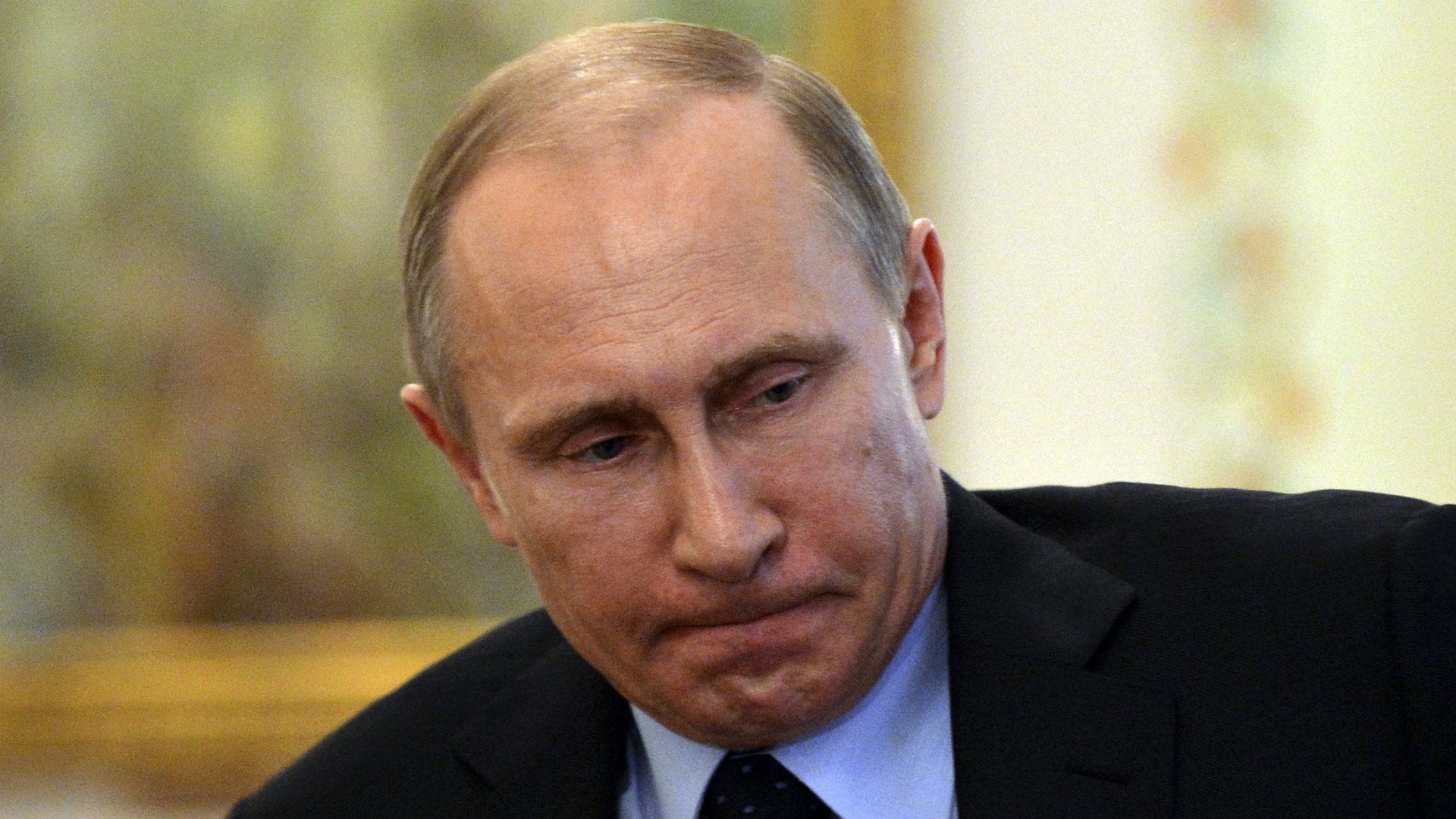Obama is unleashing the wrong energy weapon against Putin–he should use oil
In a rare joint strategy, the Obama administration and Republican Party leaders agree that American natural gas supplies should be unleashed as a weapon to puncture Russian president Vladimir Putin’s political power in Europe. There’s just one problem. While the US now has a lot of natural gas, it has no ability to export it. That’s why using America’s gas supplies to cut into Russia’s business in Europe is a pretty empty threat, at least for a while.


In a rare joint strategy, the Obama administration and Republican Party leaders agree that American natural gas supplies should be unleashed as a weapon to puncture Russian president Vladimir Putin’s political power in Europe. There’s just one problem. While the US now has a lot of natural gas, it has no ability to export it. That’s why using America’s gas supplies to cut into Russia’s business in Europe is a pretty empty threat, at least for a while.
True, the US has plenty of gas to play with, thanks to a four-year-old surge in US gas supplies triggered by hydraulic fracturing, a drilling method used to unlock natural gas embedded in shale. US drillers, now in possession of a large gas surplus, have been obtaining federal permits to export liquefied natural gas (LNG). Including a permit issued last month for Louisiana, regulators have approved six of these terminals that will export some 8.5 billion cubic feet of gas a day in all–a large volume, equivalent to 1.6 million barrels of oil exports a day.
The exports—to the degree they go to Europe—can undercut Russia’s gas-led influence in the continent. “US LNG is set to become the world’s primary swing and emergency supplier in times of crisis, which will be particularly helpful for European buyers,” the Eurasia Group’s Leslie Palti-Guzman said today in a note to clients.
But the first of these terminals won’t be finished for another two years. The remainder won’t even get started until 2017 or later, Guzman says. In other words, there’s no way the threat of US gas supplies will intimidate Putin or lead him to reverse his invasion of Ukraine.
There is another approach that could be more successful: Threaten to use US oil, not gas.
As we argued a few days ago, quoting a report by oil economist Philip Verleger, the best way to get Putin’s attention now would be for the US to release hundreds of thousands of barrels a day from its Strategic Petroleum Reserve (SPR) for export into the global market, and signal that it is prepared to keep doing so for an unspecified period of time. The result will be a drop in global oil prices, which would strike a Russian economy centrally reliant on oil and gas exports. It’s something the US could do immediately. And given that the SPR currently holds some 700 million barrels of oil, the US could keep up the daily releases for two years or so.
Some argue against a release of SPR oil, saying it would hurt not only Russia—it would harm all oil producers including those in the US. But the US will have to explain to these players that the Ukraine crisis, threatening Europe with changed-borders-at-the-point-of-a-gun, surpasses the importance of the pockets, feelings and profit of oil producing states and companies.
Others say that Putin would easily weather lower oil prices. The issue though is not simply lower prices, but sustained lower prices. That is, Putin would certainly weather a short, temporary plunge in prices. But if he were convinced that he faced low prices for a two-year period or longer, he probably would be pushed to the negotiating table.
An oil-led strategy would have to be carried out in tandem with Saudi Arabia so that it does not cut its supplies in order to prop up prices–and it is a good bet that the Kingdom would go along. True, the Saudis are angry with the US over its failure to act more forcefully on Syria. But they’re more furious at Putin, Syrian leader Bashar al-Assad’s greatest international ally.
US leaders are correct that energy is the best means to strike at Putin. But the precise weapon to use is oil.